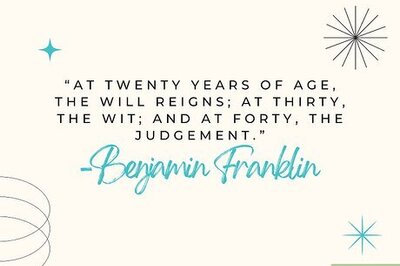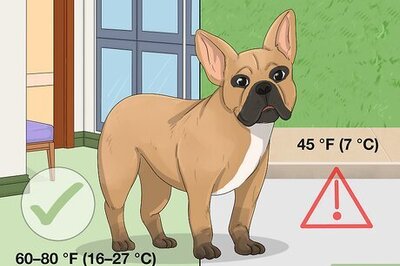
views
Cairo: Protesters called for a push on Tuesday to eject President Hosni Mubarak from power after the government conceded little ground in talks with the opposition and sought to squeeze demonstrators out of central Cairo.
The protesters barricaded in a tent camp in Tahrir Square have vowed to stay until Mubarak quits and hope to take their two-week campaign to the streets with more mass demonstrations on Tuesday and Friday.
Tuesday's demonstrations will test the protesters' ability to maintain pressure on the government after Mubarak, 82, refused calls to end his 30-year rule now. He has said he will stay until an election in September but will not run in it.
Hundreds of thousands of people took part in previous demonstrations and the United Nations says 300 people may have died so far.
Egyptian opposition figures have reported little progress in talks with the government.
The Muslim Brotherhood, by far the best organised opposition group, said on Monday it could quit the process if protesters' demands were not met, including the immediate exit of Mubarak.
US President Barack Obama however said the talks were making progress. "Obviously, Egypt has to negotiate a path and they're making progress," he told reporters in Washington.
The United States, adopting a cautious approach to the crisis, has urged all sides to allow time for an "orderly transition" to a new political order in Egypt, for decades a strategic ally.
But protesters worry that when Mubarak does leave, he will be replaced not with the democracy they seek but with another authoritarian ruler.
Many young men in Tahrir Square on Monday dismissed the political dialogue taking place.
The opposition has been calling for the constitution to be rewritten to allow free and fair presidential elections, a limit on presidential terms, the dissolution of parliament, the release of political detainees and lifting of emergency law.
The state news agency MENA reported on Monday that Mubarak had set up two committees to be involved in drawing up changes to the constitution, one of the demands of the protesters.
Mubarak on Monday chaired the first meeting of his new cabinet, which promised to keep subsidies in full and draw in foreign investment.
The potential rise to power of the banned Muslim Brotherhood troubles Egypt's Western allies and neighbour Israel, which has a peace treaty with it.
Obama said on Sunday the Brotherhood lacks majority support. The White House expressed concern on Monday about the group's "anti-American rhetoric", but stopped short of saying it would be against the group taking a role in a future government.
"We have significant disagreements (with the Brotherhood)," White House spokesman Robert Gibbs told reporters.
Keen to get traffic moving around Tahrir Square, the army has tried to squeeze the area the protesters have occupied.
Some protesters slept in the tracks of the army's armoured vehicles to prevent them being used to force the protest into a smaller space.
The powerful army's role in the next weeks is considered critical to the country's future.















Comments
0 comment